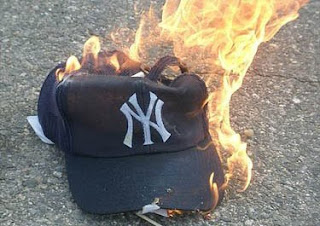In the liner notes to his re-released 1978 album Rogue Waves, critic Roger Dopson has this to say of Reid's career: "Terry Reid's story is a catalogue of lost/missed/squandered opportunities, tempered with ill-luck and frequent dashes of poor judgment - culminating in a serious case of underachievement." Ouch. And that is in the liner notes to his own record.

Reid started out with much promise (obviously). Most would agree that on vocal talents in the late 60's, he was on par with other great British rock vocalists like Robert Plant, Roger Daltrey, Steve Winwood, Rod Stewart, etc. He had (has) an impressive range, but his signature sound is a full throttle raspy belt that, to me, sounds like the perfect blend of Plant and Stewart. He was also a good songwriter, penning many great tunes, and one minor classic in "Without Expression." Also a very good guitarist, one wonders what a duel guitar, Reid-voiced Led Zeppelin would have sounded like.
Reid's recording career is one of fits and starts that never could capitalize on momentum. The British and American music press both predicted huge things for Reid at various times, but it just never happened. Powerful music producer Mickey Most (Donovan, Yardbirds, Jeff Beck) took control of Reid's career in 1968, and after releasing the rushed Bang Bang You're Terry Reid and the now revered 1969 release Terry Reid, Reid and Most had a prolonged falling out that prevented him from recording for three crucial years, grinding his upward momentum to a halt. After finally getting out from under Most, Reid's career again seemed to have great promise. Signed to Atlantic, he inexplicably only released three records for the rest of the 70's. He just didn't seem to have a vision of where his music should go, although all three of those records have some outstanding music on them (surrounded by forgettable filler). Since the 70's, Reid has only released one other studio record, instead concentrating on session work for a laundry list of other artists, sunbathing on California beaches, and playing the occasional live gig to appreciative audiences. As Dopson states in a snarky comment in the above quoted liner notes, "That magnificent voice is still intact - let's face it, he's hardly worn in out; just half-a-dozen albums in 25 years" (now close to 40, as those notes were written in '92).
Rock history is littered with coulda-been-a-contender types. Those Alex Chilton or Roky Erikson's who should have been much bigger than they were. Add the great Terry Reid to that list.
Anyway, here's some Terry Reid to check out for yourself.
ABOVE: This is probably my favorite Terry Reid song, a Neil Youngish tune called "To Be Treated Rite" from his 1975 record Seed of Memory. Beautiful acoustic tune, but check out when he really gets going (vocally) at the end. Powerful set of pipes.
ABOVE: Great rocker, "Speak Now or Forever Hold Your Peace." Sounds quite Cheap Trickish, who did a cover of this song.
ABOVE: His most famous song, "Without Expression"
ABOVE: Terry doing "Rich Kid Blues" on German TV in 1969. What a great rock vocalist.

















































